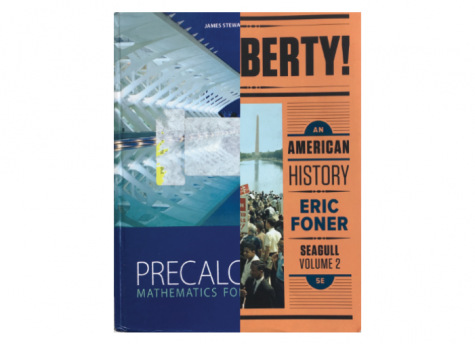Add humanities into economics courses
February 23, 2019
Our school has bred unusually skilled and prominent economists over the past several decades. Notable examples from SPA include Steven Levitt, professor of economics at the University of Chicago, and co-author of the New York Times bestselling Freakonomics series and Rebecca Jarvis, the chief business, tech and econ correspondent for ABC national news.

SPA’s economics course should strike a balance between history and mathematics: two highly applicable subjects in this field.
Economists don’t usually turn into best-selling authors and famous broadcasters; more often, their work involves investing, completing research, running businesses, and working everywhere—from Wall Street to Washington DC.
SPA’s curriculum equips us well for these futures, but an interdisciplinary economics course—that is, a class that looks at economics in the context of mathematics and history—is a needed asset. Such a course could better examine real-world applications of economics and develop a wider array of skills. SPA prides itself in going “well beyond the prescribed AP curriculum,” including AP economics, so a redesigned economics course should demonstrate this. At the moment, the course is listed as using “very limited … math skills,” giving a false impression of the field of economics.
Similarly, both our humanities and STEM regions of the school are well-developed, but they’re so distinct they encourage students to specialize in one or the other. Taking a heavy course load in both areas is unfeasible, which is why an intersectional class would be an attractive option for students that enjoy both history and math.
Economics is the ideal STEM-humanities course for its relevance, usefulness and uniqueness. Students could get ahead of the curve in terms of financial literacy (i.e. filing taxes and investing), but could also gain a larger impression of the economy as a whole, understanding obscure, far-reaching concepts like inflation. Economics is the ideal STEM-humanities course for its relevance, usefulness and uniqueness.
Economic issues, just like historical events, tend to repeat themselves. Bubbles and recessions in the economy are the most pertinent historical issues of the 21st century; avoiding them has proven so difficult. The modern economy—made unstable by day traders and risky government tax decisions—is an enigma.
In the 2008 recession, 7 million Americans lost their homes. 3.4% of businesses shut down. Jobs in all disciplines suffered severely. Consumers shifted away from credit, scared of fluctuating interest rates. The 2008 recession is a historic, human event, but its implications can be analyzed and quantified with statistics. Studying one side without considering the other gives a one-sided picture of the problem, no matter how thorough. The overlap of disciplines—history and mathematics—is too obvious for SPA to ignore.